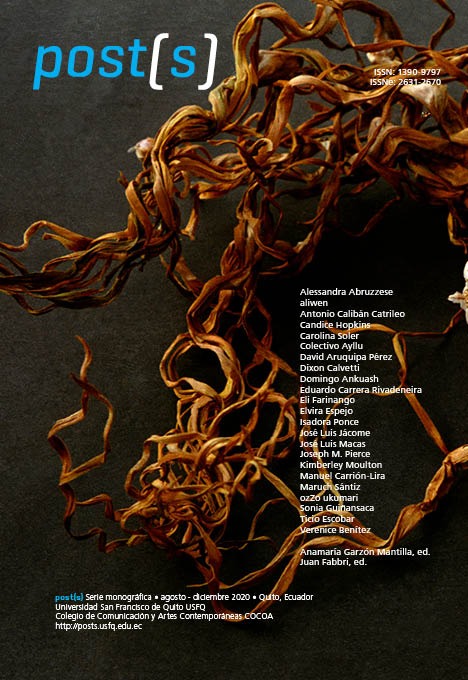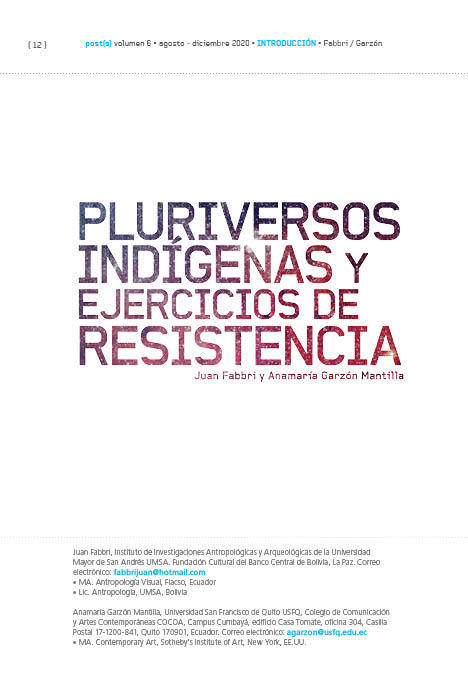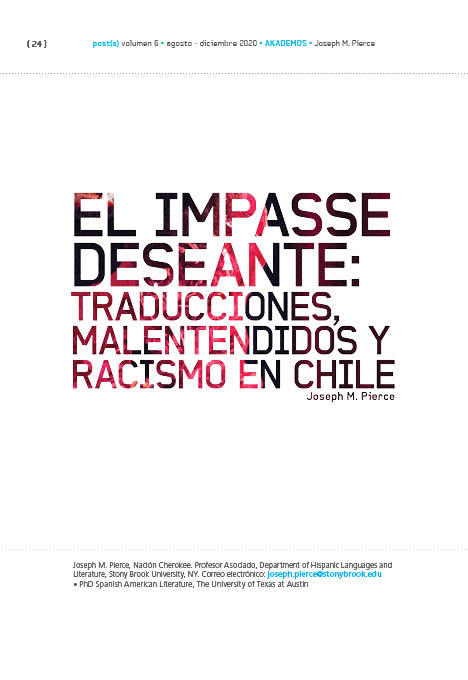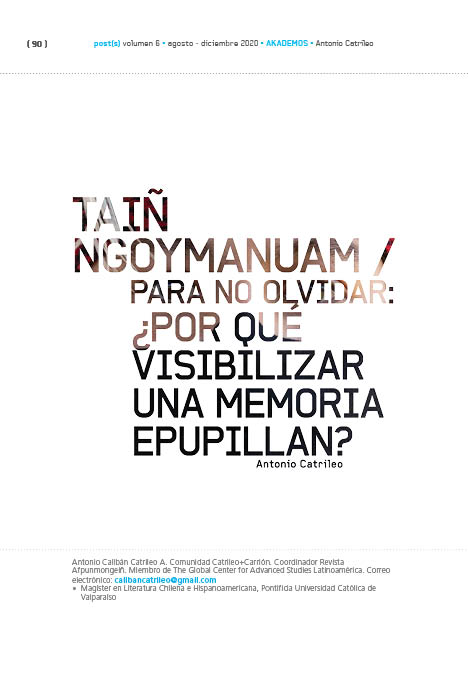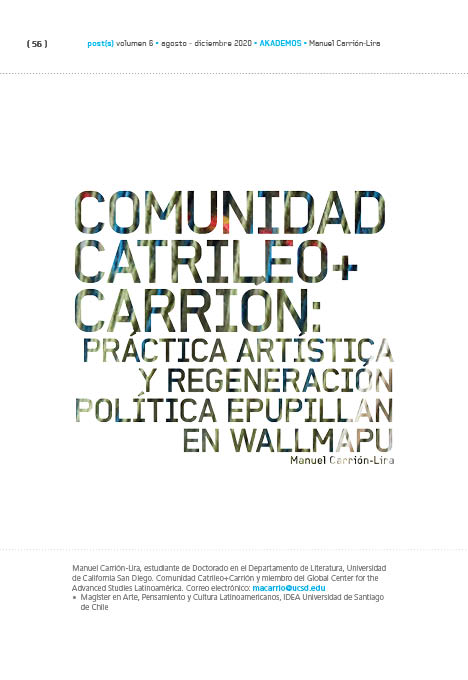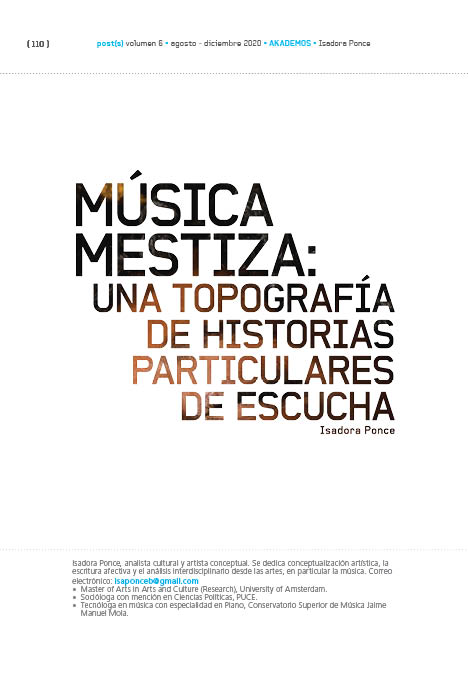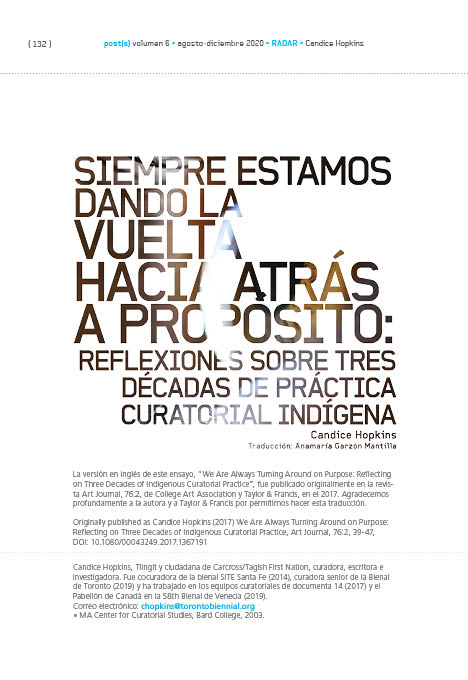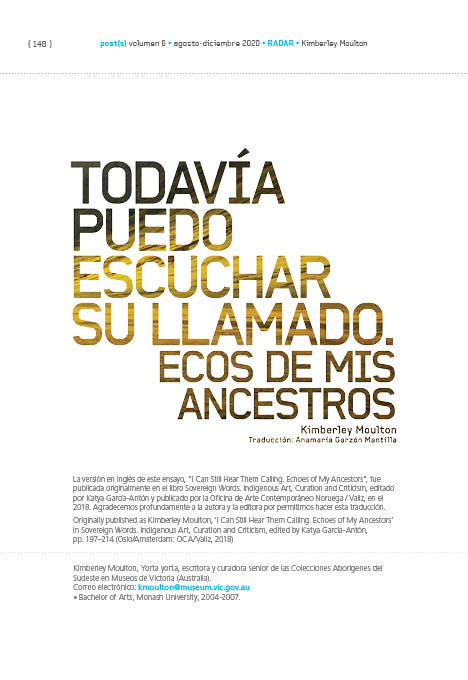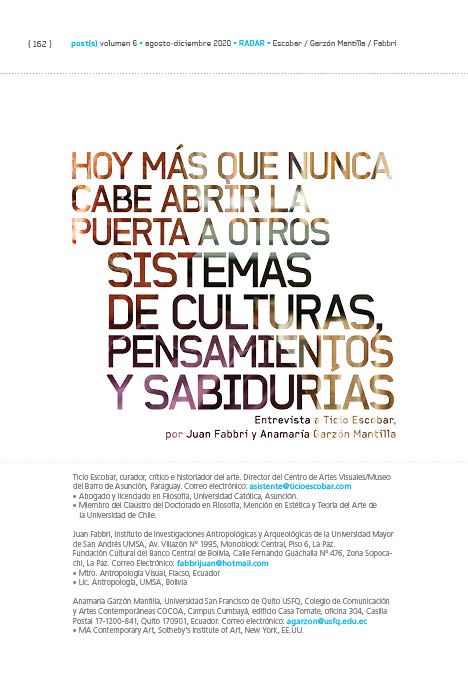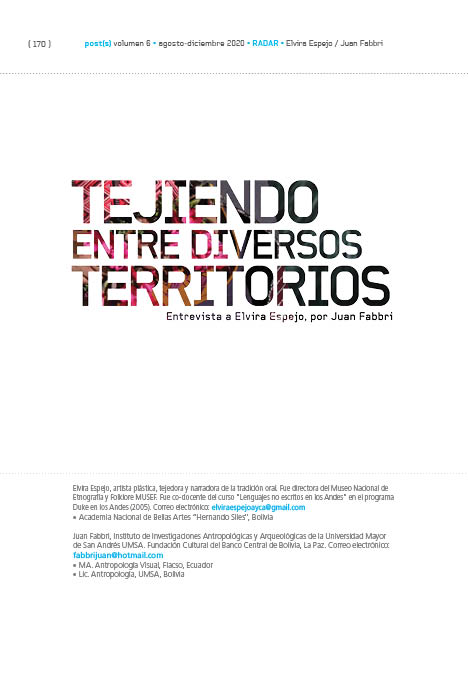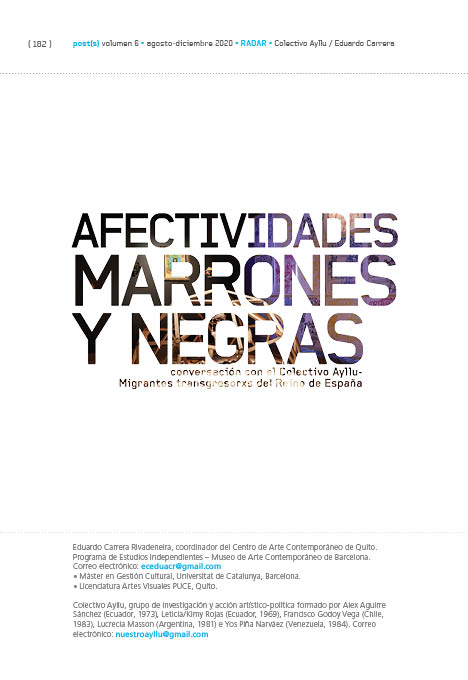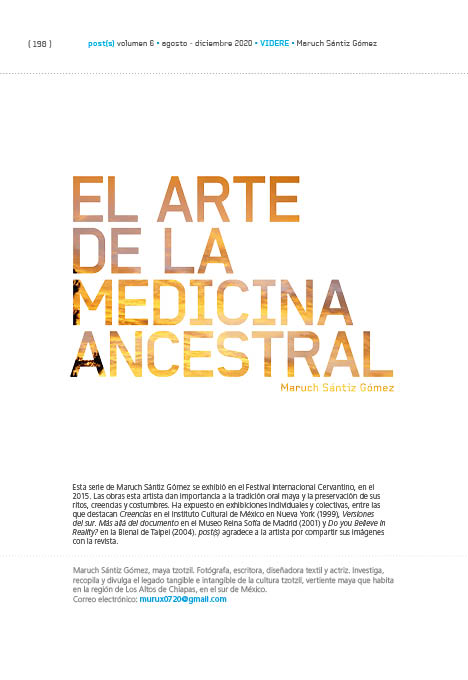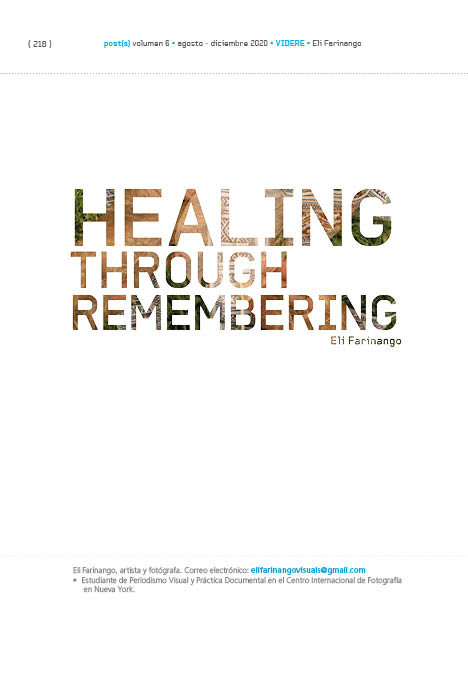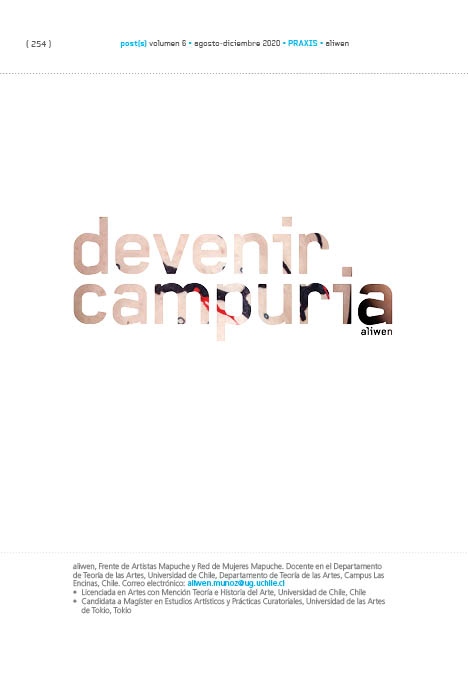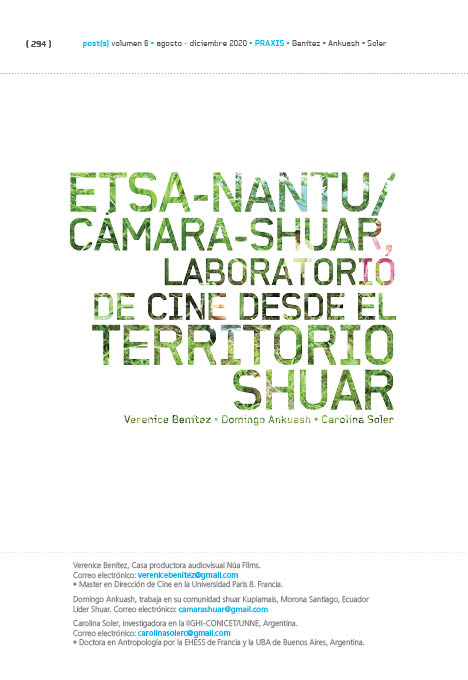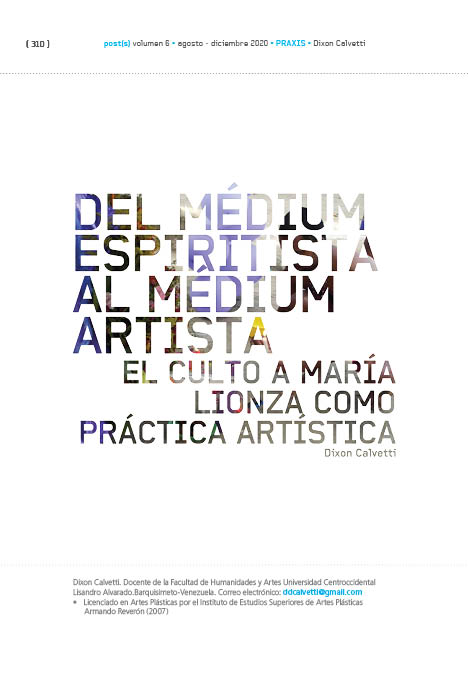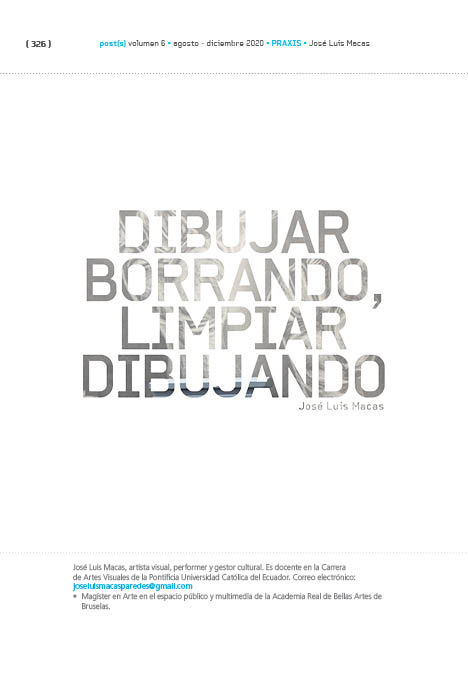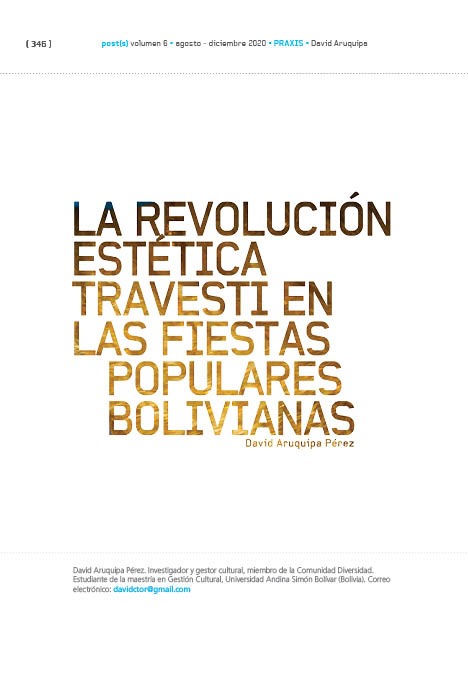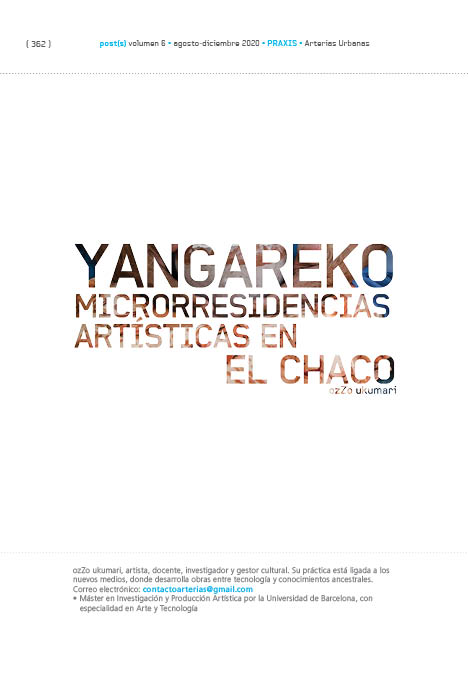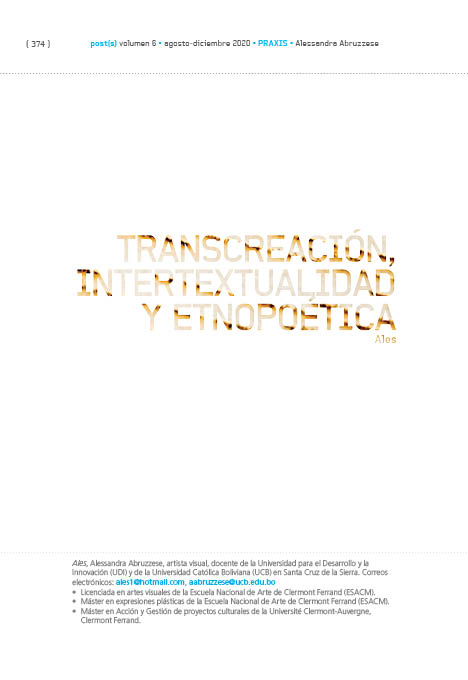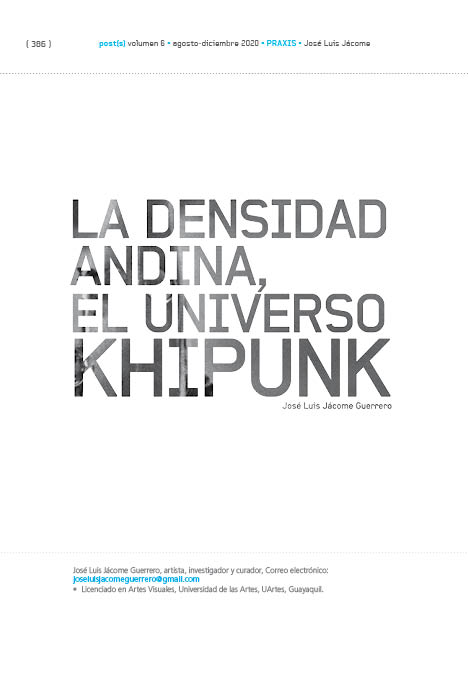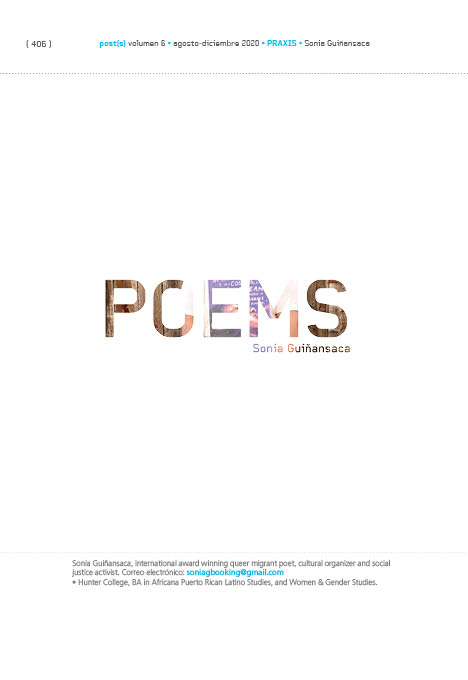Vol 6 (2020): post(s) 6
Issue Description
The call for papers for post(s) 6, written by Juan Fabbri, was a provocation to think about contemporary artistic practices and their relationship with indigenous, native, or rural communities. It proposed to think about the role that art plays in a scenario of changes and social struggles. Nevertheless, the articles featured in this issue go beyond that. The authors who responded to the call for papers changed the agenda. The essays submitted indeed speak of artistic and curatorial practices, but expanding these perspectives, they also address conflicts of race, gender dissidence, lives marked by migrations, bilingualism, practices of popular culture, and anti-extractivism.
In this edition, Shuar, Mapuche, Aymara, Quechua, Tzotzil, Kichwa, Yorta-Yorta, Guaraní, Cherokee, Tlingit and mestizxs/campuria/criollxs and racialized authors gather together. They invite us to become familiar with their practices and their discourses, with the recognition of their pasts, and with their languages. Reading this issue, then, is also a provocation for the sight, hearing and understanding. Since these combinations deliberately seek to break with the normativity of language. The 20 essays that conform this issue open a possibility to think the future by looking at the roots.

